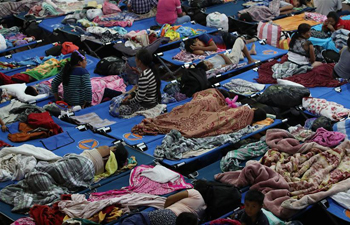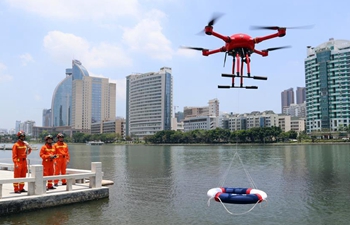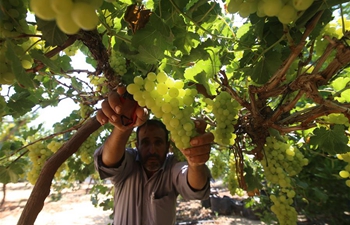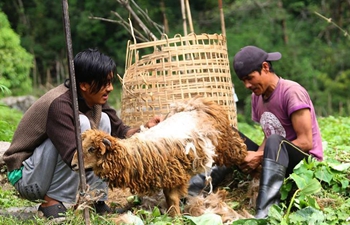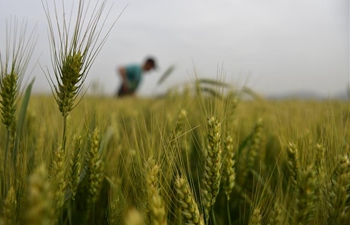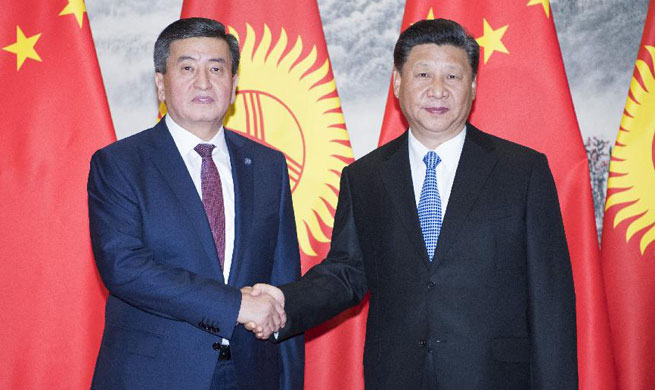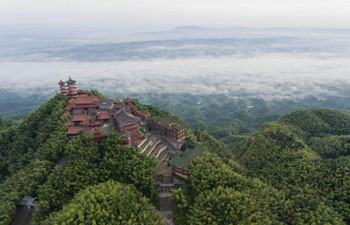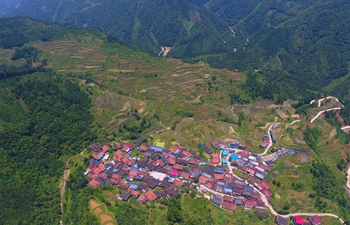by Levi Parsons
PORT MORESBY, Papua New Guinea, June 7 (Xinhua) -- After 22 years of developing vital infrastructure projects across the tropical, sun-drenched nation of Papua New Guinea (PNG), the relationship between Chinese enterprises and local people has never been stronger, said an executive of a Chinese construction company.
"Whenever Chinese employees have difficulties here, locals always offer lending hands," Wu Dongzheng, general manager of China Railway International Group's South Pacific branch, told Xinhua.
On one such occasion when travelling in an isolated, mountainous area, a heavy storm saw the business leader and his team's vehicle become stuck in thick mud.
Looking like they might be stranded until the weather cleared, Wu said that when a group of local villagers passed by and saw the Chinese company logo, they immediately wanted to help and offered to push the vehicle to safety.
Launched in 2007, as a subsidiary of its predecessor and parent company China Railway Engineering Corporation, China Railway International Group trades under the acronym CREC and currently has over 300,000 employees in around the world.
The international construction enterprise is perhaps best known for developing Poland's 610-km A2 highway, Venezuela's 471-km high-speed railway line through the country's agriculture belt and a number of transformative projects in the Democratic Republic of Congo that have included hospitals, schools and airports.
Financed largely by the World Bank, the Asian Development Bank and the Chinese Government, CREC currently have 17 infrastructure projects in PNG which include airports, bridges, water supply projects and a scheme to construct the country's first national road network spanning over 1,600 km.
But the company's impact in the picturesque, palm-tree laden paradise goes far beyond the bricks and mortar developments that have helped the country modernize over recent years.
With more than 2,500 local staff, CREC have made it a priority to improve living standards of the employees and their families.
"I've seen too much poverty, too many jobless young men and too many families without medical care," Wu said.
That's why the company is focused on providing staff with technical training and professional qualifications, as well as offering financial reward incentives to employees.
"Many families have changed their way of life because of this, and sent their children to primary schools and even universities," Wu explained.
In the isolated Highland region, where many of CREC's operations are located, school facilities are often drastically under-supplied.
"We make donations such as books, to families of local staff," Wu said. "We have also funded many children from poor families to go to school in PNG, or to study abroad in China and Australia."
"Besides this, we are one of the first Chinese enterprises to provide employees who joined us for more than three months with a social security fund."
For one of the company's longest serving local employees Daniel Nere, the most important facet of his job over the last decade is to ensure there's local participation in all CREC projects.
"We make sure the local people get contracts, subcontracts and are employed as we work along the corridors of the constructions path," he said.
"It has been my job to figure out the interrelationship between the company and the government here, and the Chinese understand us, they have much respect for PNG people like me."
With the nation riding an economic wave of success and preparing to host the 2018 APEC leaders' meeting at the end of the year, disaster struck back in February when a 7.5-magnitude earthquake, along with a relentless series of aftershocks, rocked Hella province and much of the mountainous Highland region.
In total, it's estimated that around 150 people died as a result of the tragedy.
But during this desperate time in the aftermath of the tremor, CREC took it upon themselves to help rescue local villagers.
"Severe landslides had blocked off most of the roads, so we used all of our machines and excavators to clear access roads and reach people so we could bring them food and water," Wu said, adding that after years of cooperation with local subcontractors and employees, the friendship between Chinese enterprises and local people since the earthquake has once again deepened.
At the end of 2017, Wu signed an agreement with the East and West Highlands Province Governments to develop two integrated industrial agriculture parks.
"I think developing agriculture is the most important thing for this country," he said. "But there is no road network to deliver agricultural products."
"So I invited the PNG government to join China's Belt and Road Initiative to improve connectivity and services."
With PNG's leadership onboard, there is a plan to establish "six or seven" advanced farming sites across the country that would sell eco-friendly products to the world, totally revolutionizing the local economy.
"China is one of our strongest development partners, and this direct investment is an example of the huge confidence that China and Chinese companies have in Papua New Guinea," PNG Prime Minister Peter O'Neill said when he signed the project's Memorandum of Understanding.
"These developments will enhance agriculture, roads and water supply in parts of the Highlands and help people to be more active in the economy," he said.
"The projects we have agreed on will deliver positive change for people in many towns and villages and I thank the government of China and the China Railway Company for their ongoing commitment to Papua New Guinea."
Wu's plan to help grow the country's agriculture sector stems from the long-time partnership that Chinese researchers have built with PNG's local farmers.
"About 20 years ago, Fujian Province Agriculture and Forestry University started to send experts here to assist local people in planting mushrooms and dry-land rice crops," he said.
"Now, we want to set up a training center in the agriculture industrial park to teach local students advanced agricultural science and technology."
In addition, CREC will soon build new processing plants for PNG's famed coffee and cocoa industry.




